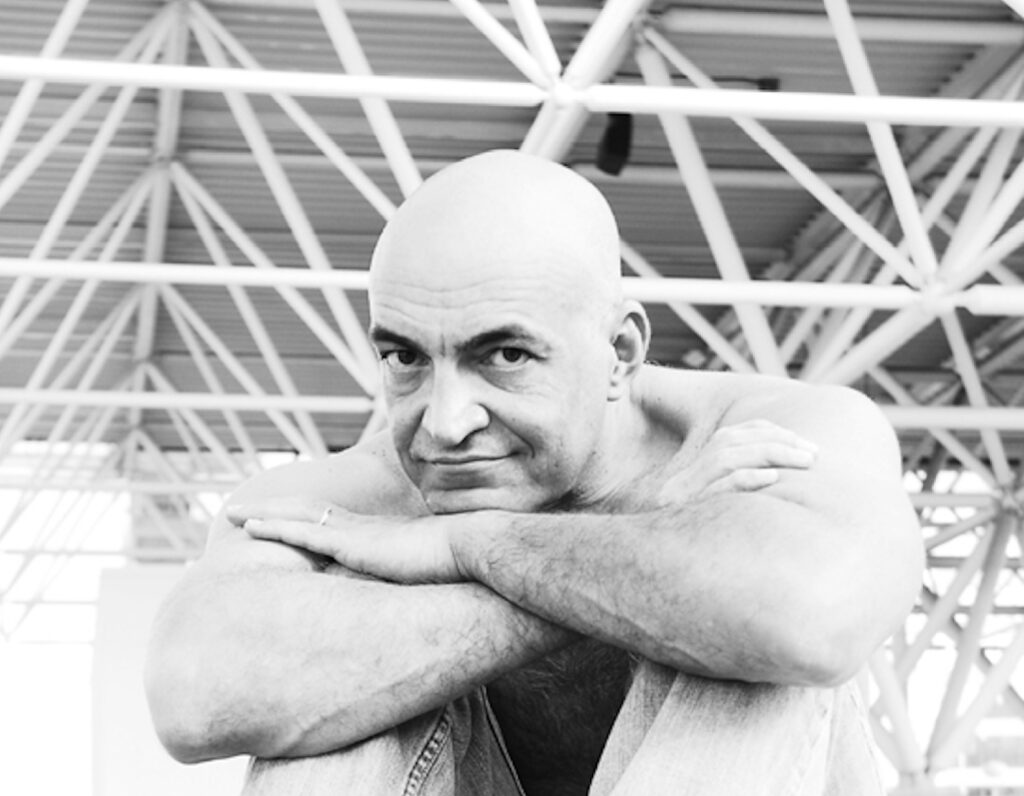Out author Greg Herren is a finalist for coveted award
Greg Herren is one of America’s most prolific gay male writers. His two new books have very different but highly provocative themes. And now he is a finalist in the prestigious Anthony Awards.
Greg Herren’s book Bury Me in Shadows has been nominated for Best Paperback/Ebook/Audiobook. The Anthony Awards are literary awards for mystery writers presented at the Bouchercon World Mystery Convention since 1986. The awards are named for Anthony Boucher (1911–1968), one of the founders of the Mystery Writers of America.
Herren is the author of the beloved, award-winning Scotty Bradley and Chanse MacLeod mystery series, a series of erotic books under the pen name Todd Gregory, an award-winning collection of essays after Hurricane Katrina and numerous stand alone novels, including his two newest books. When Queer Forty interviewed Herren by phone from his home in New Orleans, he spoke at length about the complexities of writing about race as a Southerner, campus sexual assault as a man who’s a feminist ally, and being a gay writer in what is still a largely straight milieu.
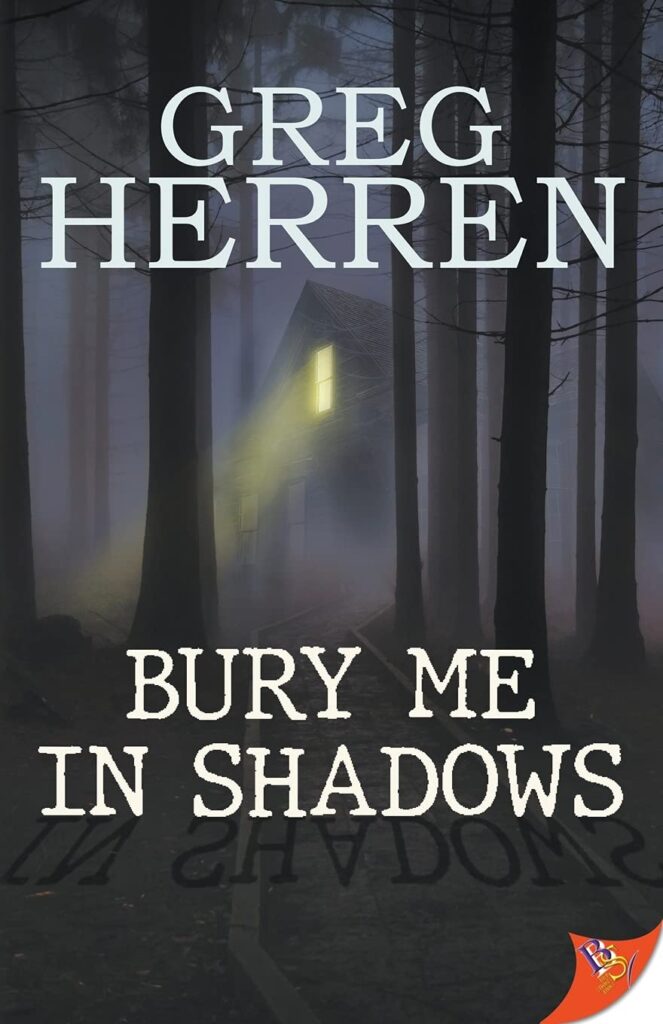
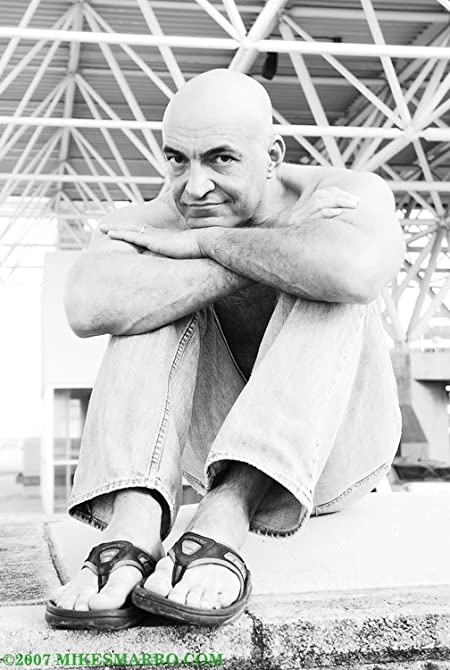
Born in Alabama, Herren is a child of the South. He explained how that personal history compelled Bury Me in Shadows. The novel details how college student Jake Chapman ends up in the hospital after a bad breakup and an ensuing drug-and-alcohol binge. The fallout means Jake must either go into rehab or spend the summer at his dying grandmother’s decaying home in rural Alabama.
Herren sat down with Queer Forty to talk about his books, turning 60 in a pandemic, the politics of reading in a time of GOP book banning and breaking ground to make a path for other writers. If you Google Greg Herren, the first thing you’ll see is a bright splash of book covers filling your screen. Lots and lots of book covers. Herren has authored and edited nearly 70 books. He has just added two new titles to his already prodigious retinue: Bury Me in Shadows and #shedeservedit, both books with personal resonance for him.
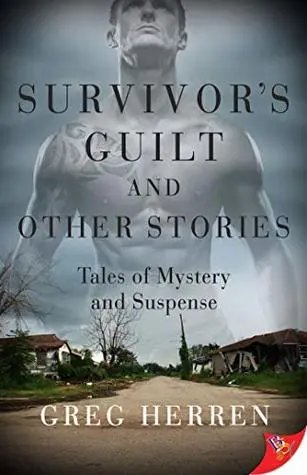
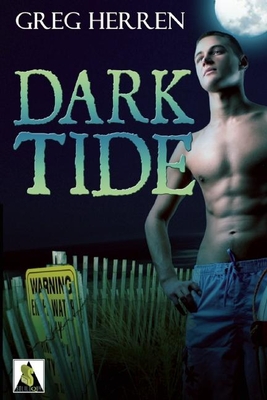

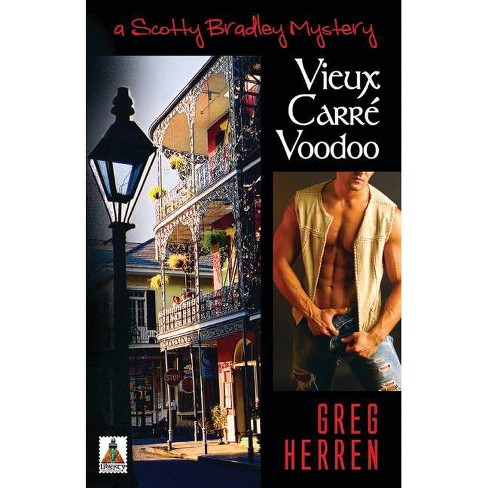
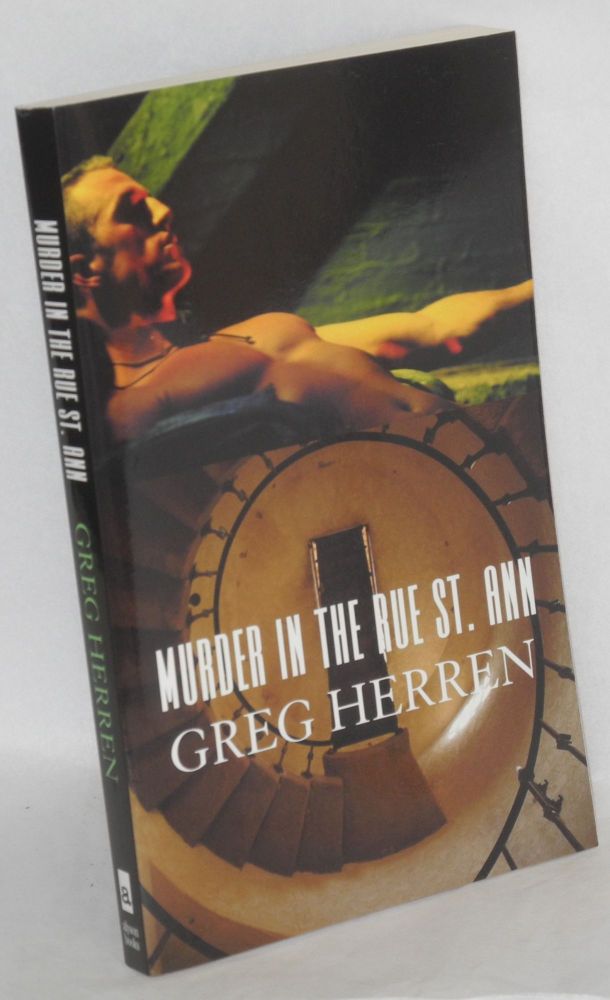
On the land that his been in Jake’s family since before the Civil War are the ruins of the old plantation house. In this supernatural thriller, Herren juxtaposes ghosts of the past and 21st century realities like a meth lab hidden in the same woods as the plantation to interrogate what really happened in the South in the years leading up to the Civil War, America’s original sin of slavery and of course, the complexities of being young and gay in unwelcoming terrain.
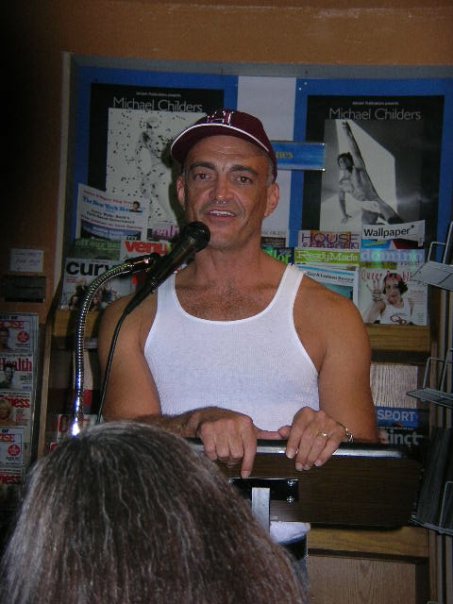
Herren, an avid reader, has been enmeshed in history since childhood, reading historical fiction voraciously. “Bury Me in Shadows” is a stellar rendering of both historical content, which Herren researched thoroughly at length, and the vivid conflicts history presents to us now—as the battles over Critical Race Theory explicate so clearly.
“We have this mythology about our country and American exceptionalism that is not honest and has so many layers to it,” said Herren. “I was raised with that Lost Cause mythology, that’s why I wrote Bury Me in Shadows. Just the thought of owning another human—it’s horrifying, it’s unconscionable.”
Herren details how in the South the Civil War is still referred to as the War of Northern Aggression. That terminology was crafted by segregationists in the Jim Crow era who claimed efforts to end segregation were comparable to 19th-century efforts to abolish slavery.
“It was very hard to write that book,” Herren said, “without thinking about these stories—revisionist histories that were taught to me about the [Civil] War.” Or without making what seems to Northerners obvious points of historical fact: “The Yankees didn’t own people, they didn’t fire on the flag.”
Herren said this language of protecting the mythology of the Civil War has become a major facet of the argument against Critical Race Theory “white Southerners just don’t want to hear about accountability for slavery.” He says the Southern version of slavery and the Civil War “bears no semblance to actual history and is why Southerners are so enraged over Critical Race Theory—it disrupts their narrative.”
“Bury Me in Shadows” is categorized as a young adult (Y/A) novel. Herren has written close to a dozen of those. He said, “The Y/A and stand alone books that I write are books that I would have liked to have read when I was a kid.”
Part of the politics of writing, Herren explained, is creating a canon where none previously existed—like books for young LGBTQ people.“I want to write stories for the kids who no one wrote for,” he says. He added, “For example, not all teen aged gay boys are pretty like the straight writers of gay Y/A write them.”Herren thinks that cis het coopting of gay and other LGBTQ narratives is problematic for queer readers. He notes that Own Voices—books about characters from under-represented/marginalized groups in which the author shares the same identity—somehow doesn’t get applied when the characters are LGBTQ.
“I don’t want to tell stories about Black, Latino and Asian teenagers because it’s not my place. But if it’s a white suburban cis het housewife doing the writing about white queer boys it’s okay, apparently. These books by straight writers about gay teens are about fantasy gay boys. They don’t want to think about actual gay boys and the smells and the leaks. They idealize it all when what we really need is reality for real teens reading these books–scenes and experiences they can relate to.”
Promoting the work of LGBTQ writers is critical to Herren, who was editor of the Lambda Literary Review for years. Herren has held the Saints & Sinners Literary Festival he co-founded with his partner, Paul Willis for 19 years. Saints & Sinners is held in tandem with the Tennessee Williams Festival. The annual event is aimed at bringing the LGBTQ literary community together to celebrate the literary arts and has grown to receive international recognition and host some of the most well-respected LGBTQ writers and thought leaders. The festival has been held virtually throughout the pandemic. “We absolutely knew people needed it to continue [despite the pandemic],” said Herren.
Herren is also deeply involved in Mystery Writers of America, the premier organization for mystery and crime writers that also distributes the coveted Edgar Award. “As far as I know, I am the first openly gay Executive Vice President in the history of the organization. I certainly am the first who wrote openly gay work, at any rate.”
He added, “I think that having me in the position shows all queer writers that they are welcome in the organization and that they won’t be Othered if they join. I’d love to see more queers joining and getting involved, frankly. We’ve done some exceptional work on getting more diverse voices into the membership. Just the visibility of me in the role alone changes everything.”
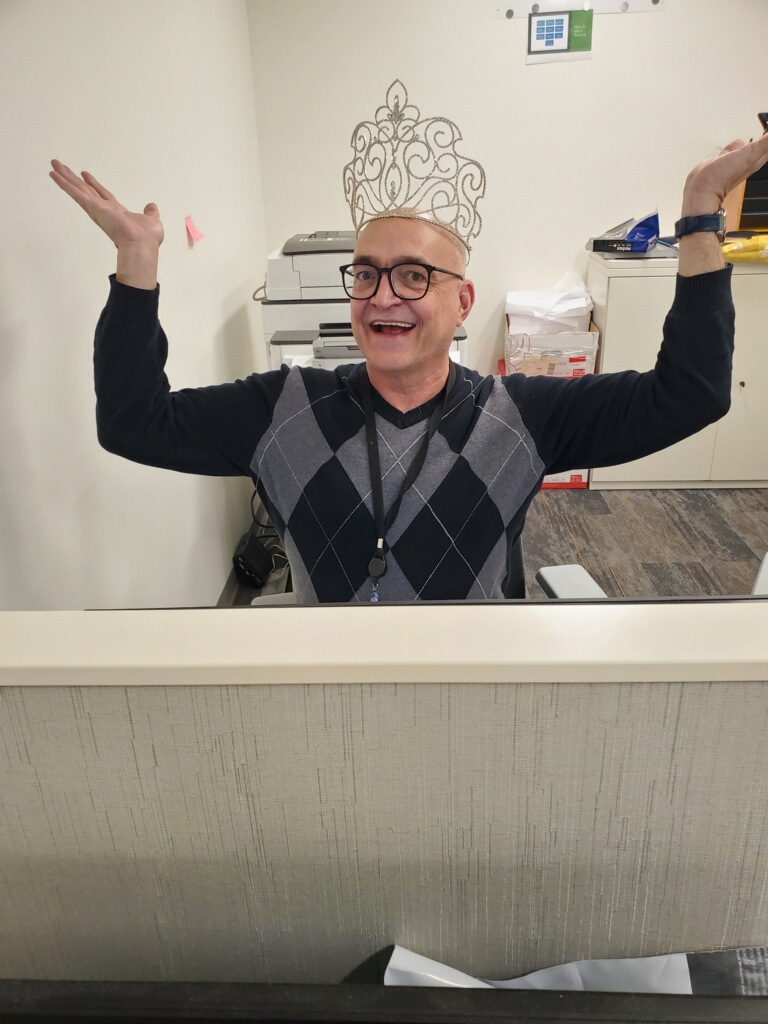
Herren chose to engage in MWA to break ground. “When I first got started in this business, it was made very clear to me that the mainstream mystery community—bookstores, publishers, magazines, conferences, organizations—wasn’t for queer writers of queer work,” he says. “You could BE queer, but you couldn’t WRITE queer. It was annoying and insulting, to be sure, but at the time it was easy to build a mystery writing career outside of the mainstream–we had our own newspapers, conferences, magazines, bookstores, etc.”
But, Herren says, “that all started going away in the mid-aughts, almost all gone now. But the mainstream mystery community has been coming around. When I joined the national board the first time, part of the reason I did so was to try to make the organization more queer-friendly—I never wanted any new queer writer to feel like MWA wasn’t welcoming for them.”
Herren knows well what it is to not be welcomed. In 2005, Herren became the victim of a right-wing smear campaign after he agreed to talk to the gay-straight alliance at Manchester High School in Midlothian, Virginia. “This was always supposed to be a ‘follow your dreams’ speech, not some heavy LGBTQ gay agenda event,” he said. “It was just going to be me meeting with these few kids after school.”
But one teacher was incensed when they heard about it and complained to the principal, who initially said he was not going to cancel Herren’s speech. The teacher, enraged, engaged an anti-gay group, Concerned Women of America, who complained to the school board. Herren said, “I had already booked the plane tickets. I came home to a message from a reporter in Richmond asking what my response was to my appearance being cancelled. It was the first I heard of it.”
Not only was Herren disallowed from talking to the club, he was banned from the school’s campus. The ACLU got involved, requesting that Herren be allowed to speak as planned.
“This appears to be nothing more than raw discrimination against the Gay-Straight Alliance because it dares to address the issue of homosexuality in high schools,” said ACLU of Virginia Executive Director Kent Willis at the time. Herren was inundated with death threats. “They call themselves Christian, but then they bear false witness against their neighbor,” he said. “Well, have fun in hell. These people, they make Torquemada look like St. Francis of Assisi.”
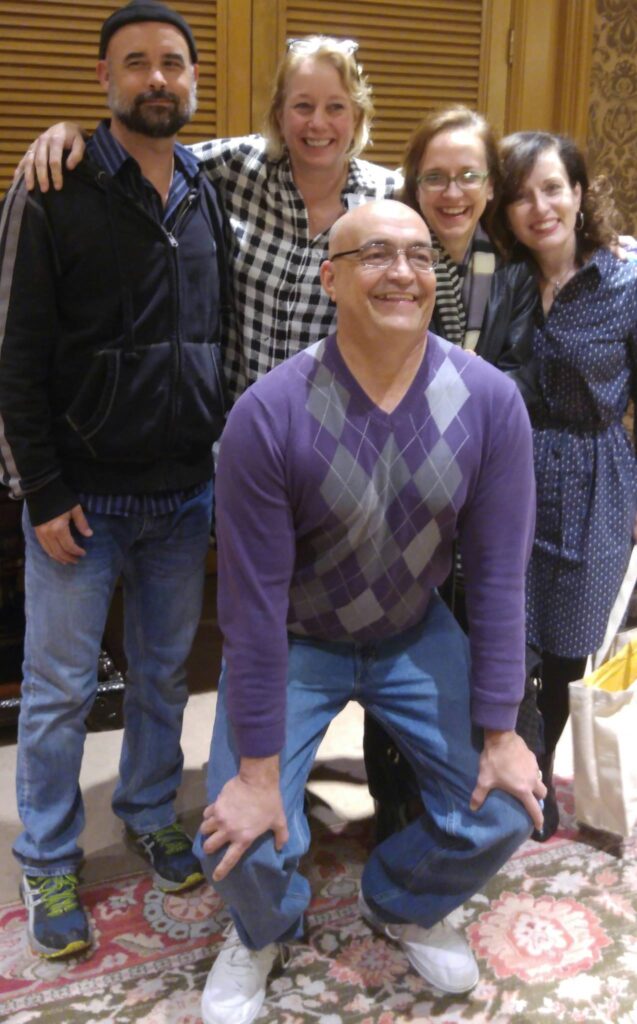
Republicans have always been hypocrites, says Herren, but what was most disappointing to him was that the majority of the gay press, then full into assimilationist politics, bought the right’s misrepresentation of Herren as a “gay pornographer. The Washington Blade referred to me as a pornographer. For the gay press to act like because I had written and edited erotica, that this wasn’t a story of discrimination, that I deserved it, was horrible.”
What bothered Herren most was that the right—and by not supporting him, the gay press—“were going after my mystery novels, which were about gay men who were happy to be gay. I was going to that school to talk to these kids about following their passions.”
Herren has been following his own passions for years. He says, “Turning sixty was an unusual experience. Other milestones—21, 30, 40, 50—came and went without any real impact. Turning sixty was…different. I think maybe it’s because I literally never expected to make it to sixty? When I was in my twenties and thirties the possibility I wouldn’t make it this far was very much a part of my reality, so I never really planned for the future or spent too much time either looking back or looking ahead—I was always very much about living in the moment.”
“When I turned sixty, it was like ‘whoa, how and when did THIS happen?’ But it also gave me the opportunity to stop and think—not just about the past, but about the future.”
Herren says being 60 is good. “ I am pretty happy, actually. I know we have a lot of stereotypes about getting older, but we also lost a generation or two [to AIDS], so I didn’t have a lot of role models about growing older gracefully as a gay man. I don’t miss much about being younger—in some ways I am glad I was too old for social media and hook-up apps on your phone when they evolved. I think about what my Facebook or Twitter or Instagram archives would be like from my thirties and shudder!”
Sixty is an exciting new chapter for Herren, who said, “I was happy to make sixty, since I never believed I would, and I am not sure how wise age has made me–I laugh whenever I am referred to as an ‘icon’ or some such nonsense. I do work with a lot of younger gay men at my day job [at an HIV/AIDS service organization], and I find myself often stopping myself when I start to say something: ‘Greg, you don’t want to be that obnoxious older man who starts everything with “when I was your age….”’ But sixty isn’t what I expected it to be—neither was forty or fifty, for that matter—and sure, I have more wrinkles and my skin isn’t as firm as it used to be, and gravity isn’t being kind to my skin, either, but overall it’s been pretty nice, really. I am pretty healthy, which is a miracle in and of itself.”
Herren says he would like to “get back into the swing of going to the gym regularly” and jokes that “my memory isn’t as sharp as it used to be—but I have more to remember now.”
Herren is also growing older with his partner, Paul Willis. “I am very blessed that I found the perfect person for me. 27 years and I can count the serious arguments we’ve had on one hand. We literally are yin and yang; we fit together perfectly. No matter what else is going on in the world I know I have someone I can count on, and that’s made an enormous difference in my life.”
Greg Herren’s books are available at Amazon and your local independent bookstore.

